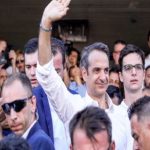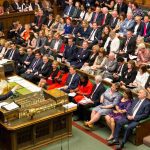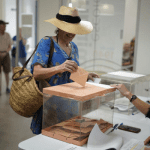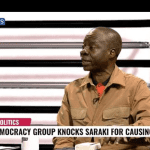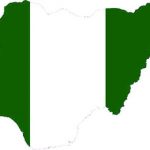France’s political leaders are scrambling to prepare for snap elections after President Emmanuel Macron dissolved parliament in response to a stinging European vote defeat by the far-right National Rally.
Finance Minister Bruno Le Maire has warned the two-round vote, starting on 30 June could have “the most serious consequences” in modern French history.
German Chancellor Olaf Scholz’s Social Democrats were also heavily beaten in Sunday’s European elections by the conservative opposition, but he has ruled out holding early elections.
The conservative CSU premier of Bavaria, Markus Söder, said Mr Scholz’s government was essentially finished and needed to follow the French example.
Germany isn’t scheduled to hold fresh elections until 2025, but Mr Söder said the “country needs a new start”.
Macron ally Yaël Braun-Pivet, who’s president of the National Assembly said there had been an alternative to new elections, which involved a government pact , but “the president decided that path wasn’t open to him”. Without a majority in parliament, the government relies on support from other parties to pass legislation.
There was also frustration from the Socialist mayor of Paris, Anne Hidalgo, that the vote was taking place three weeks before the capital hosts the Olympics.
Mr Macron’s Renew party polled less than 15% of the vote on Sunday, while the anti-immigration National Rally (RN) of Marine Le Pen and young leader Jordan Bardella, secured more than 31%.
The 720-member assembly is the only EU institution elected directly by voters across 27 EU members
It shapes the direction of EU laws that affect the lives of EU citizens, and also endorses the bloc’s annual budget
The EP supervises the work of the European Commission – the EU’s de facto government – and other EU bodies
The EP election results in theory have no bearing on national politics – but voters often use the occasion to send a message to their national government
The decision to hold new elections came as a shock across the political spectrum, with reports of a hastily organised meeting involving top RN leaders and Marion Maréchal from rival far-right party Reconquête.
There were calls for France’s bitterly divided left to rally round Socialist Raphaël Glucksmann, who scored almost 14% in the European vote.
President Macron joined German President Frank-Walter Steinmeier on Monday in the French village of Oradour-sur-Glane, to mark the 80th anniversary of an infamous Nazi massacre in World War Two, when SS troops murdered 643 villagers in 1944.
President Steinmeier said it was fitting on the day after European elections that Europeans never forgot the damage done by nationalism and hate: “Let us never forget the miracle of reconciliation that the European Union has worked.”
Alternative for Germany (AfD) came second in Germany’s European vote on Sunday, ahead of all three parties in the Mr Scholz’s coalition government, despite a succession of scandals involving the AfD’s top two candidates.
Its newly elected MEPs voted to exclude top candidate Maximilian Krah from their delegation in the European Parliament, after he was investigated for alleged links to Russia and China.
National Rally’s Marine Le Pen and Jordan Bardella were jubilant after Sunday’s victory
Meanwhile, President Macron is due to meet both Olaf Scholz and Italy’s Giorgia Meloni at a G7 summit this week in the Italian region of Puglia.
The three leaders are likely not just to discuss the outcome of Sunday’s European vote, but also whether to support Ursula von der Leyen’s bid to win a second term as president of the European Commission.
The Italian leader told Italian radio on Monday that it was “too early to talk about a second mandate” for the current Commission chief.
Ms von der Leyen’s centre-right European People’s Party emerged as by far the biggest grouping in the next European Parliament.




